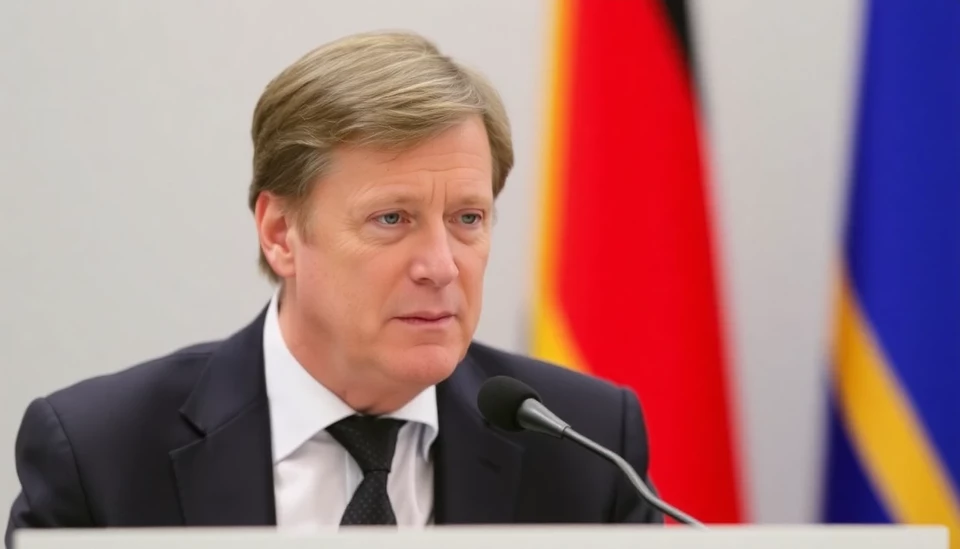
As Germany gears up for its upcoming elections, a significant financial policy known as the "debt brake" is receiving renewed backing from conservative parties. Aiming to consolidate fiscal discipline, this policy seeks to cap government borrowing, fundamentally shaping economic policy during and after the electoral period. The debt brake, originally introduced in 2009, mandates that federal and state budgets be balanced over the economic cycle, barring extraordinary circumstances. This political shift is pivotal, as it indicates the conservative parties' commitment to maintaining rigorous fiscal policies in a time of economic uncertainty.
Recent surveys have underscored a rising sentiment among the electorate favoring fiscal austerity, particularly in response to potential post-pandemic financial challenges. With Germany’s economy facing pressures from both domestic and international fronts—such as inflationary trends and rising interest rates—the endorsement of the debt brake resonates with a populace increasingly wary of government overspending. Observers note that this resurgence in support may potentially influence voter decisions in the next general elections, with fiscal responsibility becoming a central theme of the campaign.
The conservative bloc, primarily composed of the Christian Democratic Union (CDU) and the Christian Social Union (CSU), has aimed to position itself as the custodian of sound fiscal practices. By revitalizing the debt brake agenda, they seek to draw clear contrasts with more progressive parties, which may advocate for increased public spending to stimulate economic growth. The return to this policy platform reflects broader concerns over long-term debt sustainability and offsets worries about the impact of global economic conditions on Germany's robust welfare state.
This renewed emphasis on the debt brake could reshape negotiations for coalition-building after the elections. Analysts predict that if conservatives gain significant ground, they can leverage their support for the debt brake as a pivotal bargaining chip in coalition talks, particularly with parties that may prioritize different economic agendas. The potential coalition dynamics will be closely watched as parties articulate their positions leading up to the vote, which is expected to happen later next year.
Critics of the debt brake assert that strict adherence to this policy might hinder necessary investments in infrastructure, healthcare, and climate change initiatives. These dissenting voices argue that economic prosperity requires flexibility in budgetary policies, especially in the face of rapid technological advancements and social changes. However, proponents argue that the debt brake provides a necessary framework to ensure fiscal responsibility, encouraging public trust and economic stability during tumultuous times.
As the electoral landscape evolves, the debate surrounding the debt brake will undoubtedly intensify. The implications of the upcoming elections on Germany's fiscal policy will extend beyond national borders, influencing European economic governance and initiatives. Observers and policymakers alike will be keenly watching how these dynamics unfold in the months leading to the vote.
In conclusion, the growing support for Germany's debt brake, particularly from conservative parties, sets the stage for a significant shift in the country’s economic policy framework. This development not only reflects domestic sentiments towards fiscal discipline but also hints at broader implications for the future of collective economic governance within the European Union. With all eyes on the upcoming elections, Germany's economic direction hangs in the balance.
#Germany #DebtBrake #Conservatives #Election2024 #FiscalPolicy #EconomicStability #FinancialAusterity
Author: Rachel Greene




